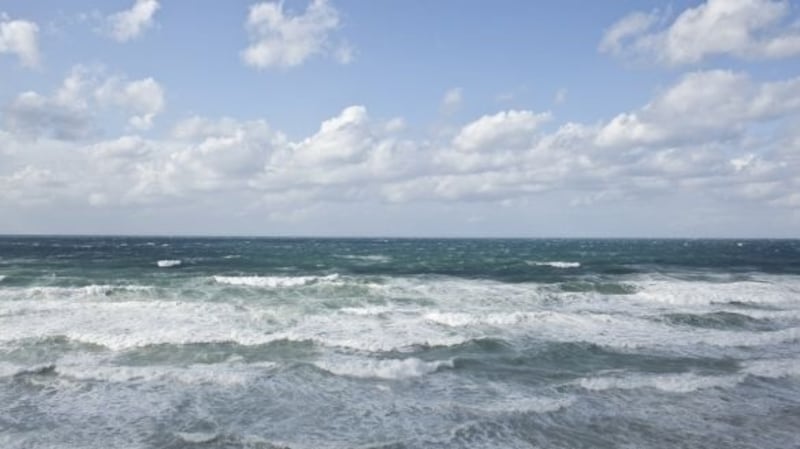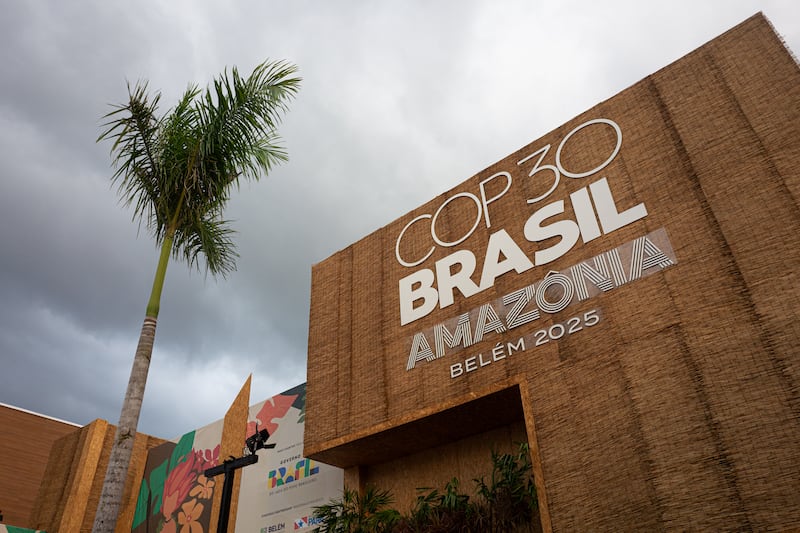Data critical for tracking weather systems affecting Ireland is missing and the body tasked with gathering it is facing a funding crisis, the Cop30 climate summit heard.
The Global Climate Observing System (GCOS) warned that the loss of the US as a key funder was putting its work in jeopardy.
That work includes improving understanding of the increasingly volatile Atlantic Meridional Overturning Circulation (AMOC), the system of ocean currents responsible for keeping Ireland’s climate unusually mild for a country positioned so far north.
Thelma Krug, chair of the GCOS steering committee, speaking at the Cop30 climate summit to scientists whose work feeds into the system, said the withdrawal of US funding was a major problem.
“We have learnt with utmost concern that GCOS is facing difficulties that bring into question its very existence,” she said.
“We did have a payment [from the US] for 2024 but we did not have a payment for 2025. It’s a big financial shock.
“Thinking of the future, if the situation continues like this, we are not going to be able to go beyond 2027.”
Part of GCOS’s work is identifying gaps in data and working to get researchers, instruments and processes in place to fill them.
 The Atlantic Meridional Overturning Circulation (AMOC), the system of ocean currents responsible for keeping Ireland’s climate unusually mild for a country positioned so far north. Photograph: Getty Images
The Atlantic Meridional Overturning Circulation (AMOC), the system of ocean currents responsible for keeping Ireland’s climate unusually mild for a country positioned so far north. Photograph: Getty Images
An example is the AMOC which scientists have reported is slowing and could collapse, resulting in Ireland having icy winters like regions of Canada that share a similar latitude.
Opinions differ on how dramatically and how soon the change could happen and GCOS members warned more data was urgently needed.
“Models show conflicted results and data is limited,” said oceanographer, Karina Von Schuckmann.
“Without more robust observations, the future of the AMOC and our climate will remain really uncertain.
“Without long-term ocean observation, climate policy is flying blind.”
Frank McGovern, chief climate scientist at the Irish Environmental Protection Agency, who chaired discussions at the gathering, said the information that flowed from GCOS could also “prevent extreme weather events becoming extreme disasters”.
[ Collapse of Atlantic ocean current could turn Ireland’s climate into Iceland’sOpens in new window ]
He explained afterwards how GCOS works.
“It’s taking essential data from deep in the ocean to the top of the atmosphere and everything in between,” he said.
“You’re talking about meteorological observations, observations of greenhouse gases, forestry, grassland, rivers and lakes, the cryosphere and the oceans and everything that’s happening in them.
“It’s done through a combination of instruments in situ on the ground, in the water, on ships and then also satellites.
“We work with organisations around the world on setting out what are the variables, how to measure them and develop the systems to manage the data.
“If you’re in a developed country, you’re probably doing a lot of these this anyhow but in some of the developing countries, there are major gaps.”
 COP30 climate summit in Belem, Para state, Brazil. Photograph: Alessandro Falco/Bloomberg
COP30 climate summit in Belem, Para state, Brazil. Photograph: Alessandro Falco/Bloomberg
GCOS was set up after the 1992 Rio Earth Summit and Dr McGovern said maintaining the continuity it had developed since was extremely important.
The gathering heard about new projects by research bodies around the world that will feed into GCOS.
But it also heard of gaps such as the Amazon rainforest just beyond the Cop30 host city of Belém in Brazil where the impacts of fires and deforestation are understood, but not sufficiently quantified.
The Arctic presents another challenge. Its sea ice is melting twice as fast as the Antarctic and its waters are acidifying three to four times faster and it is not clear how much of this change the ice sheets and ecosystems can sustain.
GCOS has a wish list of projects that run to billions of dollars, particularly for deploying satellites, but Dr Krug said it may have to operate to a minimum level if its funding situation is not sorted.
[ Cop30: Some optimism as latecomer countries submit emission-reduction plansOpens in new window ]

